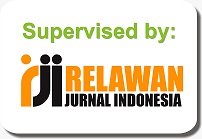KONSELING DENGAN PENDEKATAN RATIONAL EMOTIVE BEHAVIOR THERAPY UNTUK MENGATASI KEBIASAAN MEROKOK
DOI:
https://doi.org/10.32939/tarbawi.v14i1.252Keywords:
Counseling, Rational Emotive Behavior Therapy, SmokingAbstract
Smoking is an act of waste and waste on property. The purpose of this study were to described: 1) smoking habits of students before giving Rational Emotive therapy? ; 2) student smoking habits after giving Rational Emotive therapy ?; and 3) the effectiveness of Rational Emotive counseling therapy in reducing students' smoking habits. This research was used pre test & post test design. The population in this research were all class X students of SMAN 3 Pekanbaru who had smoking habits with totaling 32 students. To determine the sample of this study, the researcher used purposive sampling. Then, through this technique, 5 students were used as the research sample. Besides, the data was analysed by using "t" test. Moreover, the result of this research showed that: 1) before given emotive rational counseling therapy, students smoking habits are in the high category with an average score of 92.6 and an average percentage of 77.167%; 2) after given emotive rational counseling therapy have decreased, students smoking habit are in the medium category with an average score of 66.8 and an average percentage of 55.667%; and 3) there is a significant difference between students' smoking habits before and have been given emotive rational counseling therapy that is equal to 4,691. This means that rational emotive counseling therapy is effective to reduce student smoking habits.
Downloads
References
Amirullah, Ganang Bachtiar & Sugiyo. (2016). Mengurangi Perilaku Merokok Melalui Pendekatan REBT Dengan Teknik Time Projection. Indonesian Journal of Guidance and Counseling: Theory and Application, 5 (3): 7-11.
Desmita. (2010). Psikologi Perkembangan. Bandung: Remaja Rosdakarya.
Helmi, Avin Fadilla & Komasari, Dian. (2000). Faktor-Faktor Penyebab Perilaku Merokok pada Remaja. Jurnal Psikologi, No. 1: 37-47.
Nik, Maryam Mousavi. (2013). Rational emotive behavior therapy (REBT) for depression and smoking cessation in infertile women. 2nd International Conference and Exhibition on Addiction Research & Therapy ,July 22-24, 2013 Embassy Suites Las Vegas, NV, USA.
Partodiharjo, Subagyo. (2006). Kenali Narkoba dan Musuhi Penyalahgunaannya. Erlangga: Jakarta.
Saktyowati, Dian Oky. (2008). Bahaya Rokok. Depok: Arya Duta.
Sari, Ari Tris Ochtia., Ramdhani, Neila., &Eliza, Mira. (2003). Empati dan Perilaku Merokok di Tempat Umum. Jurnal Psikologi, No. 2: 81 – 90.
Sujadi, Eko., Yusuf, A. Muri., & Marjohan. (2016). Hubungan antara Locus of Control dan Efektivitas Komunikasi antar Pribadi dengan Problem Focused Coping. Konselor, 5 (1), 24-32.
Sukardi, Dewa Kentut. (2008). Pengantar Pelaksanaan Program Bimbingan dan Konseling di Sekolah. PT. Rineka Cipta: Jakarta.
Sulistyoningrum, Nunuk Yuli. (2018). Mengurangi Perilaku Merokok pada Siswa Melalui Layanan Bimbingan Kelompok. Jurnal Penelitian Bimbingan dan Konseling, 3 (1): 98-108.
Willis, Sofyan S. (2009). Konseling Individual Teori dan Praktek. Bandung: Alfabeta.









